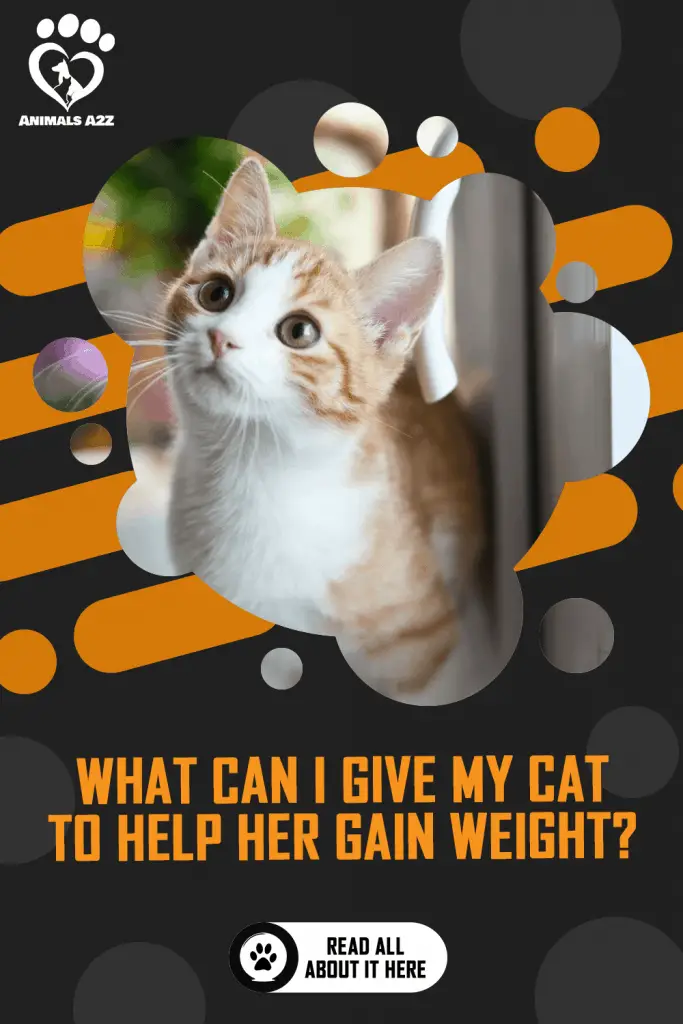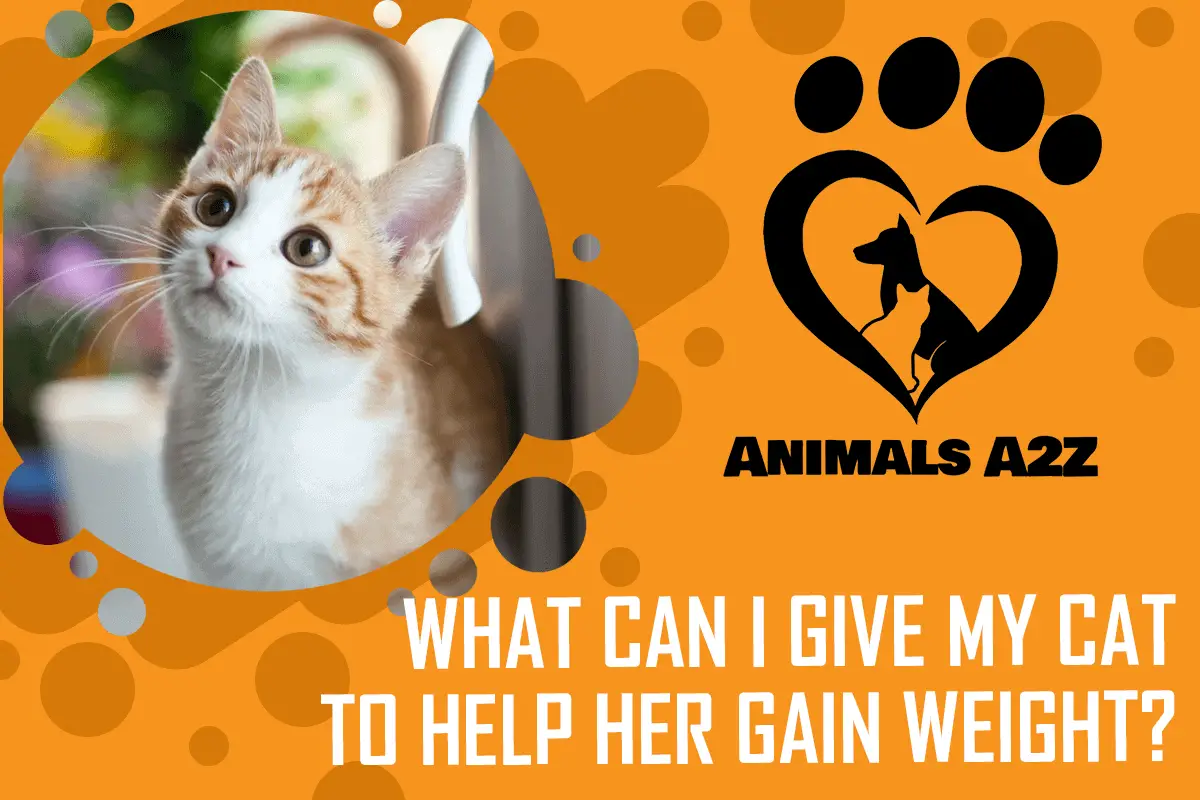After illness, surgery, or another difficult cause, you might find your kitty is below her ideal weight. Getting her back up to a healthy, lean weight is very important for her overall well-being and for the proper functioning of her organs. In order to help your cat gain weight, you need to come up with the right process of feeding routines and diet. It can be done properly with the help of your trusted veterinarian.
Table of Contents
Understanding the Reasons Why Your Cat is Underweight
When vets talk about the weight of a cat, it is usually focused on obesity. While obesity is considered as a prominent feline health problem, many cats are also facing the dangers of being underweight. Just like weight loss, gaining weight can also be a very tricky issue for your cat since it is not just about changing her diet.
First, you will need to know the reason why your feline friend is losing weight. After that, you can be able to determine an action that includes processes like diet and medication with the help of your vet to help your cat gain a normal weight safely. These are the most common causes of weight loss:
- Kidney disease
- Intestinal parasites
- Diabetes
- Hyperthyroidism
- Gastrointestinal disease
- Dental disease
- Chronic pain
- Lung disease
- Cancer
Identifying Your Cat’s Ideal Weight
Knowing the ideal weight for your kitty is the major goal before you start a weight-can diet program since it can be easy to get her over-fed and for her to become overweight that results in a wide range of health problems. Make sure to speak to your veterinarian about what should be the ideal weight for her and what time frame works well for her to gain weight.
What to Feed Your Cat to Help Her Gain Weight
If the medical problem of your cat is under control (e.g. painful teeth are pulled, parasites are treated), correcting the calorie deficit might be the only important treatment in this situation. Here is what your vet will say about your cat’s diet for gaining weight.
Find a Food that Fits the Preferences and Needs of Your Cat
The most important step during this process is to find a certain type of food that your cat will really enjoy but doesn’t cause her an upset stomach. You want a cat food that fits her dietary requirements but also highly palatable so that she will be encouraged to eat it.
It is not usual for cats to have strong preferences for a specific type (dry/canned), texture, or flavor of food. So, navigating the preferences and needs of your cat is considered as the first as well as the most important step you should take in order to encourage your cat to eat.
Make Sure the Food You Choose Fits Your Cat’s Nutritional Needs
Cats are naturally obligate carnivores. It means your cat needs to get the right nutrients for her overall health from animal sources. A cat’s natural prey (dry matter basis), like small rodents, are actually estimated to contain about 45% fat, 55% protein, and 1 to 2% carbohydrate.
Even though the prey’s macronutrient breakdown is only 1 to 2% carbohydrate, most kitties can utilize up to 40 to 45% of their diet in forms of carbohydrates as a source of energy. Generally, dry food contains more amount of carbohydrates compared to wet food.
Weight Gain Food Options for Cats
Good quality food for young cats is considered as a great choice to feed underweight adult cats. Fortunately, most adult cats like to eat kitten food. You can give your cat a calorie- and nutrient-dense kitten food as it is highly palatable to adult cats. Aside from that, your vet can also be able to prescribe cat foods with high calories to support your cat’s weight-gain journey. You can also ask your vet about cat foods with formulations that are highly digestible as well as provide extra calories.
What to feed a senior cat to gain weight
It’s really difficult to take care of a senior underweight cat. They are often picky eaters and tend to exhibit more demanding behavior towards people than dogs and other pets do. This is especially true if your cat gets even older. Knowing what you should feed your senior cat in order to gain weight could be difficult for fur parents.
What you should do as a cat parent is to remember that attempting to get your senior cat to gain more weight is to put to more flexibility and patience. Take note that a particular strategy that works well for one cat might not work for another. Having said that, you’ll have to learn more about your cat’s individual needs as well as pay more attention to the body language he’s showing you, like how they show displeasure or pleasure when you’re encouraging him to eat.
Encouraging your senior cat to eat
Before you start to encourage your senior to eat, it’s highly advised that you rule out any medical condition first. You should bring your cat to your veterinarian and let him be assessed properly so that proper diet, medication, tests will be given. Once you have all the results and eliminated the health issues as the underlying cause of the sudden weight loss of your senior cat, you can then begin encouraging him to eat healthily.
You can follow the tips we’ll list below as your starting point in exploring options and to figure out what and how you should feed your senior cat. Naturally, cats are finicky eaters, and it’s common for them to decide whether he likes the food or not. As such, try approaching the process with the goal of providing your cat the nutrition he needs.
Changing your old cat’s food
Changing the food of your cat is usually considered as people’s last resort – but it does not have to be. In fact, your senior cat can be able to give you indicators whether they like certain cat food or not. If your cat turns his nose up at the regular cat food that you’re giving him, then this may be a sign that he wants to try new food. Your senior cat might respond well to a new flavor, like changing from beef flavor to a tuna or chicken flavoring. It is very important that you know well how to properly switch foods for your cat before you do it yourself. During the first few weeks, make sure you include a half portion of the new food and half portion of the old food so that your cat will get used to the ingredients you’re offering him.
Common Questions About How to Help Your Cat Gain Weight
Why Is My Cat Not Gaining Weight?
Common GI issues that lead to a cat’s weight loss include food allergies, inflammatory bowel disease, or certain infections. Aside from that, intestinal parasites may also be the cause of the unintentional weight loss of your cat. Just like what we’ve mentioned above, there are several causes of feline weight loss, we suggest that you take your cat to a vet for proper diagnosis and treatment.
How Do You Fatten Up A Cat?
The food for your cat’s weight-gain process needs to have a higher energy density. In that way, your cat will be able to eat a lesser amount of food but still get the nutrients they need from their weight-gain diet. The food for her weight-gain journey must also be palatable and easy to eat to stimulate her appetite.
What Food Will Help Cats Gain Weight?
Underweight cats should eat foods that are around 20% fat and 30% protein if they are eating dry food, or 5% fat and 7% protein, or higher if they are eating wet food. You can also intersperse the diet of your cat with small amounts of supplemental canned products or canned food with high calorie and made of pure meat sources.
How can I get my older cat to gain weight?
When you want your older cat to gain weight, it is important that the cat is comfortable around mealtime, and that there is no stress related to eating. One way that often works for older cats, is to divide portions into smaller meals. It also works wonders to heat up their food.
Why is my senior cat so skinny?
The reasons for skinny senior cats and weight loss is often diabetes mellitus, chronic renal disease, IBD or inflammatory bowel disease, exocrine pancreatic insufficiency, dental problems, and hyperthyroidism. It is also possible that your cat is skinny without any underlying condition. What you should do is to encourage him to eat by offering new foods.
What should I feed my elderly cat?
Cat foods that are specially created for senior cats can be able to provide high-quality protein content. Cat food for elderly cats often also have extra E vitamins added in order to develop and strengthen the natural defenses of your cat.
Is wet food better for older cats?
It is often better for older cats if you serve them wet food. That is especially the case if they already have dental or gum problems. The soft texture of canned wet cat foods may be easier for senior cats to eat opposed to the crunchy kibble they usually ate as kittens and young cats.
Conclusion
Addressing the underlying health problem of your cat, choosing the right food as well as knowing how much you should feed her are vital for success. However, that is just your starting point. The moment you have these things sorted, you’ll need to properly establish and stable feeding routine for your cat to effectively gain weight.


